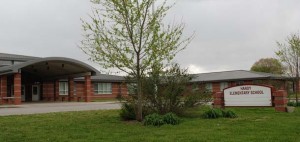 Educational Practices of Six Effective Tennessee Schools
Educational Practices of Six Effective Tennessee Schools
In April and May of 2007, researcher Guy Bruce visited six elementary and middle schools in Tennessee whose principals were recognized through the Value-Added Achievement Awards. By visiting these schools – some of the most effective in the state – he hoped to identify the practices that they had in common that might contribute to solid student learning gains.
He identified 12 distinct practices, all of which are related to the systematic collection and analysis of data; his findings can be found by downloading the complete report, available here as a PDF file.
His findings include:
- They use progress tests that assess the same skills that are tested on the state’s Tennessee Comprehensive Assessment Program (TCAP) examinations.
- They require students to meet higher-than-minimum mastery criteria on student progress tests.
- They employ practice-intensive learning activities that target the types of skills required by the examination.
- The principal receives frequent reports of individual student progress with respect to attainment of Tennessee’s curriculum standards.
- Teachers receive frequent reports on the progress of each of their students.
- Teaching practices are adjusted when a student makes insufficient progress towards a curricular objective. Students simply are not permitted to quietly fail.
- Student progress data is used to assess each teacher’s classroom effectiveness. Teaching performance is tracked continuously by the principal or by colleagues who are assigned to monitor teacher and student progress.
- The principal and other teachers routinely work with struggling colleagues to improve their teaching skills.
- Principals obtain supplemental budgetary support for the training and materials required to improve teacher performance.
- The school regularly informs parents about their child’s performance and seek to work with parents whenever children are progressing insufficiently.
- They survey parents at least annually to assess satisfaction with the school’s services.
- They have school-wide programs that reward positive social and academic student behavior. Principals monitor the success of these programs, collecting data on the number and type of student referrals for problem behavior.
